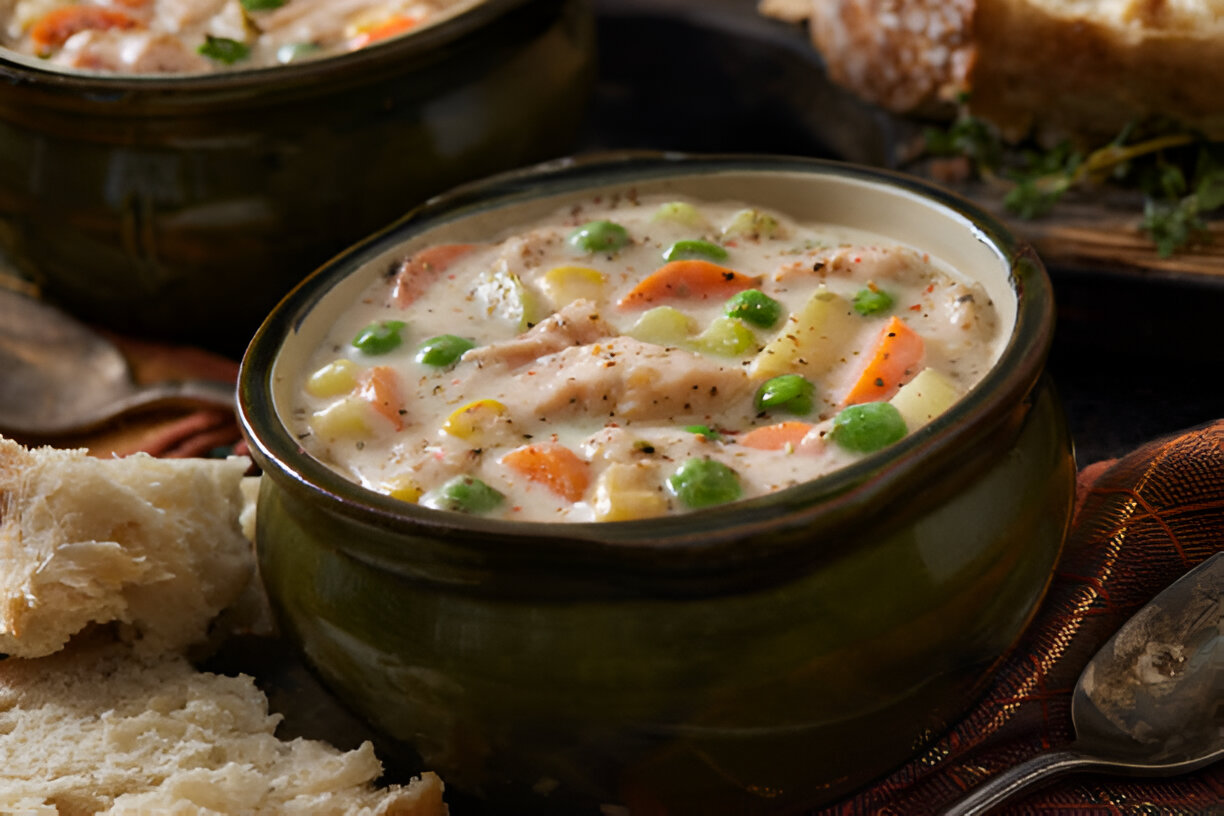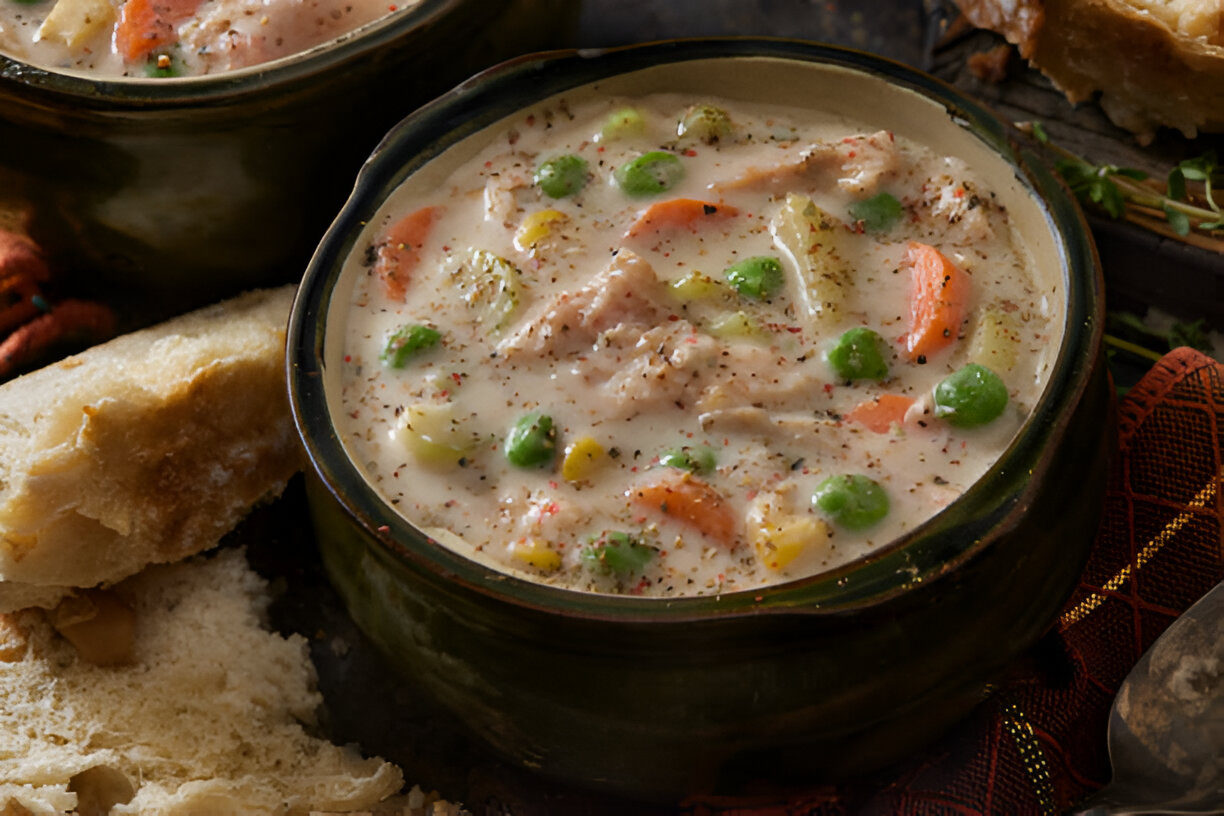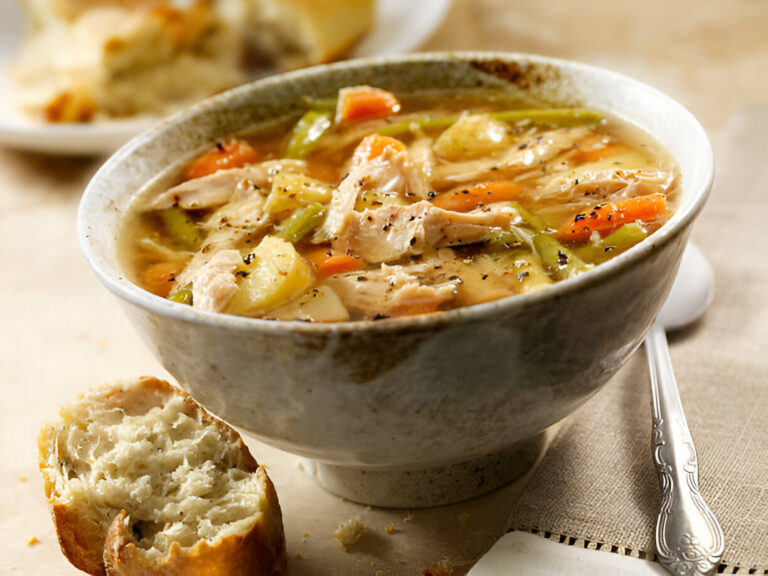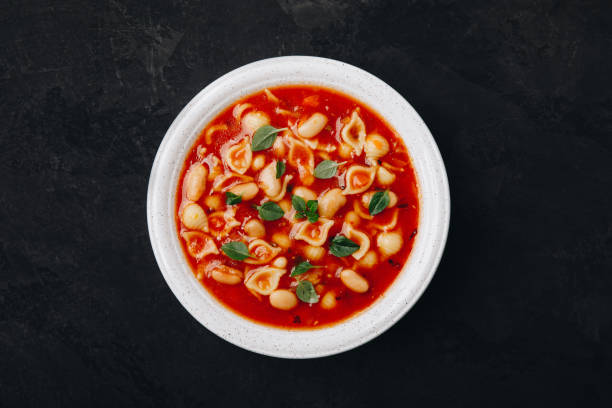Delicious Leftover Turkey Soup: Easy Recipes & Tips
As the holiday season approaches, the spirit of togetherness often culminates in lavish feasts, where turkey reigns supreme on many dining tables. However, the joy of indulging in a glorious Thanksgiving meal often brings the dilemma of leftovers, particularly turkey. Instead of letting that delicious bird go to waste, discovering ways to creatively repurpose it can not only save food but also delight your taste buds. One quintessential route is making leftover turkey soup, a dish loved for its warmth and heartiness during the colder months. This comforting soup is more than just a remedy for post-Thanksgiving cravings; it’s a canvas for culinary creativity and a chance to nourish your family without the guilt of waste.
Introducing “Leftover Turkey Soup” as the ultimate solution to transform your Thanksgiving remnants into a rejuvenating meal, this article aims to celebrate the art of utilizing what you have in a resourceful and delicious way. Not only does it minimize waste, but it also serves as a gateway to a myriad of possibilities for hearty meals that carry the flavors of the holiday season well into winter. Join us as we explore the benefits of this beloved dish, offer insights into its basic components, and guide you through a simple yet scrumptious recipe that can become a cherished staple in your home.

Benefits of Leftover Turkey Soup
Creating a delicious bowl of leftover turkey soup is not just a culinary delight; it also brings numerous benefits to both your kitchen and your wallet. One of the most significant advantages is waste reduction. Food waste is an alarming issue in many households, and transforming leftover turkey into soup is an excellent way to minimize this waste. Instead of tossing away those old turkey scraps, you can repurpose them into a nutritious meal that satisfies your family and keeps food out of landfills.
Nutritionally, turkey is a powerhouse of lean protein, essential vitamins, and minerals. Incorporating leftover turkey into your soup not only enriches it with valuable nutrients but also contributes to a balanced diet. It’s a wonderful way to keep hunger at bay while providing your family with the goodness they need during colder months.
In addition to its nutritional benefits, leftover turkey soup is also a cost-effective meal option. By utilizing what you already have at home, you can save money on grocery bills while still delivering hearty, comforting dishes that the whole family will love. This is especially important during the holiday season when budgets can get tight with all the celebrations.
Moreover, the versatility of turkey soup cannot be overstated. With countless variations to fit different dietary needs—be it gluten-free, dairy-free, or packed with vegetables—there’s a recipe for everyone. This adaptability makes it easy to cater to various tastes and restrictions without sacrificing flavor or satisfaction.
Basic Components of Leftover Turkey Soup
To create a superb leftover turkey soup, it’s essential to understand its basic components. The star ingredient, naturally, is the leftover turkey itself. You can use various parts of the turkey, including the breast, thighs, or even the carcass to extract maximum flavor.
Next comes the broth base, which is pivotal in setting the foundation for your soup. While homemade broth adds a personal touch and depth of flavor, store-bought options can also work well, especially for those pressed for time. Consider vegetarian alternatives if you’re looking for a meatless option without compromising on flavor.
Then, we have the vegetables—common choices like carrots, celery, and onions not only add texture but also pack a nutritional punch. These staple ingredients serve as the aromatic base of your soup, infusing it with a wealth of flavors.
Lastly, don’t forget the herbs and spices! Ingredients such as thyme, bay leaves, and pepper elevate the flavors of your soup to a whole new level. Experimenting with different herbs can enhance the dish and make it uniquely yours, ensuring that every bowl is a comforting masterpiece.

Leftover Turkey Soup Recipe
Ingredients
- Cooked leftover turkey: 2-3 cups, shredded or chopped
- Turkey or chicken broth: 6 cups
- Carrots: 2, diced
- Celery: 2 stalks, diced
- Onion: 1, chopped
- Garlic: 3 cloves, minced
- Herbs: e.g., thyme and bay leaves
- Salt and pepper: to taste
- Optional add-ins: noodles or rice, frozen peas, corn, or beans
Pro Tips
- Choosing the right herbs for flavor, such as parsley and rosemary.
- Storing leftover turkey safely by allowing it to cool completely before refrigeration.
Directions
- Prepare Broth: In a large pot, heat the broth, adding the turkey carcass if using.
- Add Vegetables: Sauté the onion, garlic, carrots, and celery until tender.
- Combine Ingredients: Add the turkey meat, broth, and herbs to the pot; bring it to a boil.
- Simmer: Lower the heat and let it simmer for at least 30 minutes to allow the flavors to meld.
- Add Noodles/Rice (if using): Add noodles or rice in the final 10-15 minutes of cooking.
- Final Seasoning: Taste and adjust seasoning with salt and pepper to your liking.
- Serve: Remove bay leaves and serve hot with crusty bread on the side.
Advice and Tips
- Storage: Store soup in an airtight container in the fridge for up to 3-4 days or in the freezer for up to 3 months.
- Reheating: Reheat soup on the stovetop for best results, but you can also use a microwave.
- Variations: Consider different types of leftover turkey soup, like adding spices for a spicy version or cream for a creamy variation.
Creative Variations of Leftover Turkey Soup
Mexican-inspired Turkey Soup
Transform your turkey soup with festive flavors by adding spices like cumin and chili powder. Toss in diced tomatoes and black beans for a hearty dish that bursts with flavor.
Creamy Turkey Soup
For a rich and indulgent twist, incorporate cream or milk into your soup base, stirring in just before serving for a luxuriously smooth texture.
Vegetable-Heavy Turkey Soup
Increase the ratio of vegetables by incorporating spinach, kale, or additional root vegetables for a healthier option. This approach offers extra nutrients without compromising on comfort.
Turkey and Rice Soup
For a filling meal, include rice in your soup. Choose from long-grain, wild, or even brown rice, and cook until tender. This can make the soup more filling, perfect for chilly days.
How to Serve Leftover Turkey Soup
Presentation is key to enhancing your soup’s appeal. Pair the soup with side dishes like crusty bread, a fresh salad, or even a savory grain like quinoa for a balanced meal.
Garnishing your soup can elevate its look and flavor. Consider adding fresh herbs, croutons, or a sprinkle of cheese on top to give a delicious finishing touch.
Frequently Asked Questions (FAQs)
How long can I keep leftover turkey soup in the fridge? Generally, leftover turkey soup can be stored in the fridge for 3-4 days. Always ensure it is kept in an airtight container.
Can I freeze leftover turkey soup? Yes, turkey soup freezes well. Store it in a freezer-safe container for up to 3 months. Just be sure to leave some space for expansion.
What can I add to turkey soup for more flavor? Fresh herbs, citrus zest, or a dash of hot sauce can add depth and enhance the overall flavor profile.
Is it safe to use turkey carcass for soup? Yes, using the turkey carcass is a great way to extract flavor and nutrients. Just be sure to strain the broth well before serving.
Conclusion
Leftover turkey soup is a delightful way to minimize waste while enjoying wholesome, hearty meals. By repurposing Thanksgiving remnants, you not only feed your family but also embrace sustainability in your cooking.
Feel encouraged to experiment with different ingredients and flavors. This classic dish can be personalized to suit your tastes and preferences, making it a cherished staple in your kitchen.
Call to Action
We’d love to hear from you! Share your own variations of leftover turkey soup or your favorite cooking stories with us. For more delicious leftover recipes, check out our recipe section on the blog!

Leftover Turkey Soup
Equipment
- 1 Large pot or Dutch oven
- 1 Cutting board
- 1 Chef’s knife
- 1 Measuring cups
- 1 Measuring spoons
- 1 Wooden spoon or ladle
Ingredients
- 1 tablespoon olive oil
- 1 medium onion, diced
- 2 carrots, diced
- 2 stalks celery, diced
- 3 cloves garlic, minced
- 1 teaspoon dried thyme
- 1 teaspoon dried rosemary
- 8 cups turkey stock (or chicken stock)
- 2 cups cooked turkey, shredded
- 1 cup frozen peas
- 1 cup green beans, cut into 1-inch pieces
- 1 cup corn (fresh or frozen)
- to taste salt and pepper
- 1 cup cooked noodles or rice (optional) For added heartiness.
Instructions
- Heat the olive oil in a large pot or Dutch oven over medium heat.
- Add the diced onion, carrots, and celery. Sauté for about 5-7 minutes, or until the vegetables are softened.
- Stir in the minced garlic, thyme, and rosemary, cooking for another 1-2 minutes until fragrant.
- Pour in the turkey stock (or chicken stock) and bring the mixture to a boil.
- Once boiling, add the shredded turkey, peas, green beans, and corn. If using, add the cooked noodles or rice at this point.
- Reduce the heat to low and let the soup simmer for 30 minutes. Stir occasionally.
- Season with salt and pepper to taste.
- Serve hot, and enjoy your comforting bowl of leftover turkey soup!







